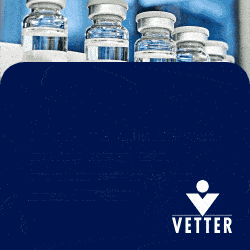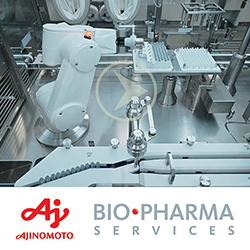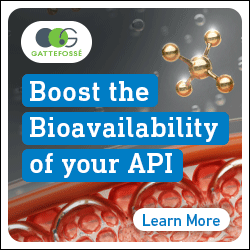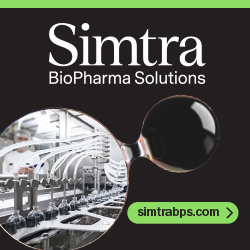Zafgen Announces Positive Results for Phase 2 Clinical Trial
Zafgen, Inc. recently announced positive data for the second cohort of its Phase 2 clinical trial of ZGN-1061, designed to evaluate efficacy and safety in patients with type 2 diabetes and the likely therapeutic dose range of ZGN-1061 up to 1.8 mg. The clinical trial met all of its primary objectives at the 1.8 mg dose, which included glycemic control, or change in A1C, and safety and tolerability. The 12-week data demonstrated that treatment with the 1.8-mg dose of ZGN-1061 produced substantially more improvement in A1C than the 0.9-mg dose. Progressive and notable reduction in body weight also occurred in patients treated with the 1.8-mg dose. The data showed a favorable safety and tolerability profile for ZGN-1061, with no treatment-related serious adverse events and no cardiovascular (CV) safety signals observed.
“The results we’ve seen in our Phase 2 development of ZGN-1061, and particularly with this latest 1.8-mg dose cohort, appear very competitive with the currently available best-in-class anti-diabetes therapies,” said Dennis Kim, MD, Chief Medical Officer, Zafgen. “All of the pharmacological actions of ZGN-1061 improve at the 1.8-mg dose level and, with its insulin-sensitizing effects, we believe there is a clear opportunity for even greater benefit with longer treatment duration given the effect we are seeing at just 12 weeks.”
Treatment with ZGN-1061 demonstrated a statistically significant reduction in A1C for 0.9 mg and 1.8 mg versus placebo at Week 12 (p=0.0003 and p<0.0001, respectively), with a 1.1% reduction in A1C at the 1.8-mg dose relative to placebo. A1C levels continued to decline with no waning of effect for both doses through Week 12. Progressive weight reduction was also observed at the 1.8-mg dose (p=0.0002), with placebo-corrected weight loss of 2.3 kg (5.1 pounds) seen at Week 12 with no evidence of waning effect. Significant improvements were observed across multiple secondary efficacy endpoints and various relevant metabolic biomarkers, as well.
ZGN-1061 was generally safe and well-tolerated, with an adverse event (AE) profile comparable to placebo. AEs were primarily mild to moderate, and there were no treatment-related serious AEs in the second cohort. The most frequent AEs at the 1.8-mg dose were upper respiratory tract infection, injection site bruising, contusion, and nasopharyngitis. There were no meaningful elevations in mean D-dimer concentrations across the dosing groups, including 1.8 mg, as compared to baseline or placebo (excluding three patients who experienced a hand fracture [placebo], gout [0.3 mg] and synovial rupture [1.8 mg] unrelated to treatment) and no CV safety signals observed.
“For many people with type 2 diabetes, A1C levels are not adequately addressed by currently available treatments. MetAP2 inhibition offers a novel and unique mechanism of action and a promising potential option in the treatment of this serious disease,” said John Buse, MD, PhD, Chief, Division of Endocrinology at the University of North Carolina School of Medicine. “The significant improvements in A1C and weight, two cornerstone pathology parameters of type 2 diabetes, coupled with very good tolerability and safety results for ZGN-1061, are impressive at 12 weeks. So far, these results look very encouraging.”
Zafgen previously reported positive full 12-week results for the initial cohort of this Phase 2 proof-of-concept clinical trial that included a range of doses up to 0.9 mg at the American Diabetes Association’s 78th Scientific Sessions in June 2018.
“While there are many treatments available to address type 2 diabetes, the bar is rising for new options and innovative mechanisms to address this complex disease and growing epidemic,” said Jeffrey Hatfield, Chief Executive Officer, Zafgen. “The profile of ZGN-1061, based on the Phase 2 clinical data, continues to align with our mission to bring safe, effective, and potentially transformative treatments to patients who could benefit, and we believe these data will strengthen the attractiveness of ZGN-1061 in our ongoing discussions with potential partners.”
Zafgen expects to present full results of the Phase 2 clinical trial for ZGN-1061, including the 1.8 mg dose cohort, at an upcoming medical meeting in 2019.
Zafgen is a clinical-stage biopharmaceutical company leveraging its proprietary MetAP2 biology platform to develop novel therapies for patients affected by complex metabolic diseases. Zafgen has pioneered the study of MetAP2 inhibitors in both common and rare metabolic disorders and is currently advancing programs for type 2 diabetes, Prader-Willi syndrome and liver diseases. Learn more at www.zafgen.com.
Total Page Views: 1087

















